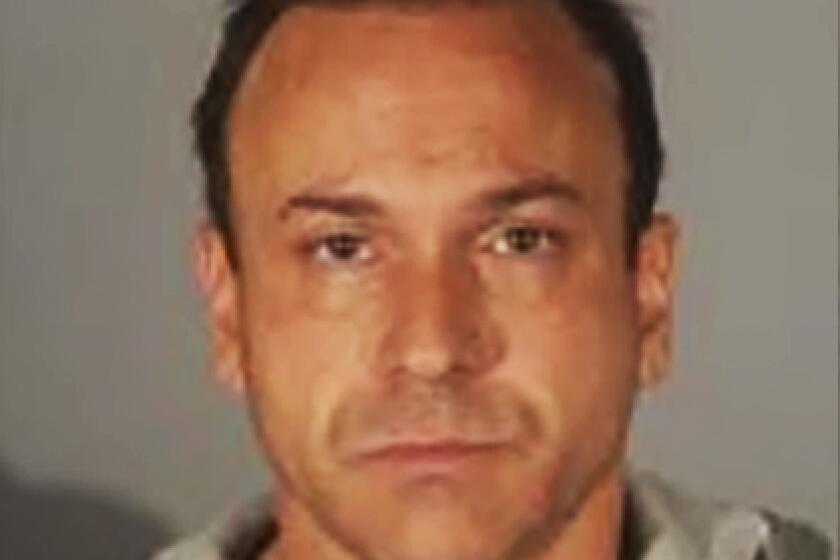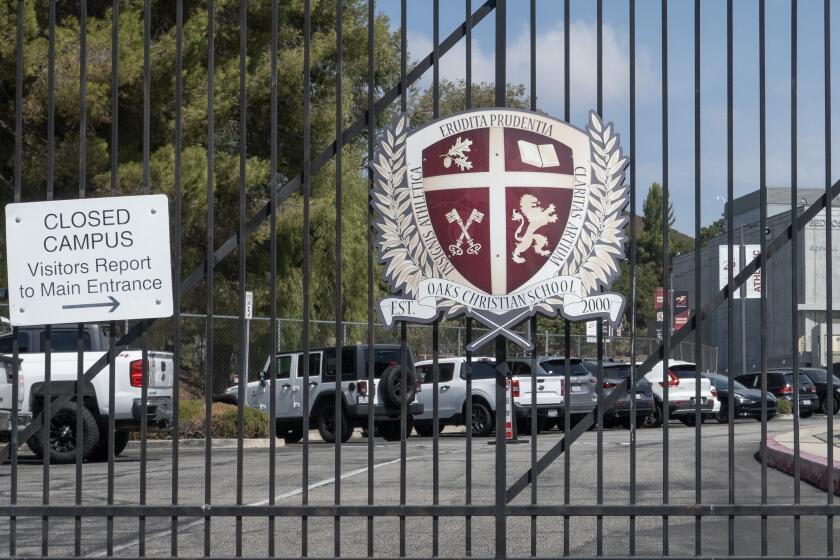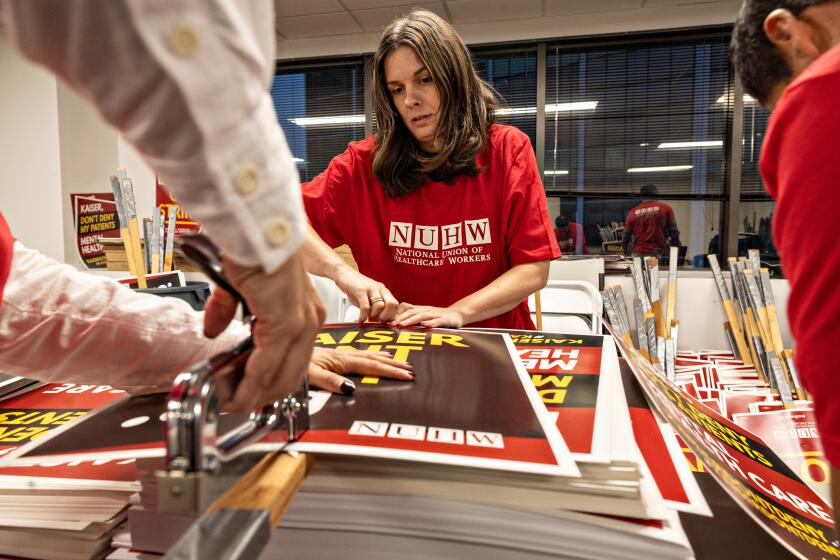City Council Adopts New Ethics Rules
Mayor Antonio Villaraigosa and the Los Angeles City Council took steps Tuesday to tighten ethics standards to prevent city commissioners and other officials from misusing their power for political or financial gain.
The actions came as an ethics expert and others questioned the propriety of Villaraigosa’s inaugural gala, which allowed firms that have business before city officials to spend up to $100,000 to attend. The money from Thursday’s event went to a publicly funded charity that is run out of the mayor’s office.
The ethics reforms enacted by the mayor and council were praised by good government advocates as long overdue. But several, including Michael Josephson, president of the Josephson Institute of Ethics in the Los Angeles area, were troubled by the mayor’s decision to host a fundraiser that collected money from developers, city contractors and lobbyists, among others.
“They are giving the money to the charity to please the mayor,” Josephson said. “You ought not be soliciting anything from anybody who wants something from you.”
Villaraigosa based much of his successful campaign against Mayor James K. Hahn on his pledge to clean up City Hall and ensure that contributions were not influencing city decisions. Federal and county grand juries continue to look into whether city contracts were tied to Hahn’s political fundraising.
On Tuesday, the City Council adopted four new laws aimed at issues raised by the grand jury probes, including a ban on city commissioners participating in the process of evaluating and recommending city contracts that their commissions will eventually vote on.
There were complaints that some Hahn commissioners met with bidders for contracts at the same time they were raising money for him, creating an impression that bidders had to “pay to play.”
The council also banned commissioners Tuesday from earning money to lobby City Hall, and it required paid campaign consultants and fundraisers to register with the city Ethics Commission and take classes on campaign finance rules.
The council also required lobbyists to file their quarterly activity reports online to make it easier for the public to follow their actions.
“I believe the reforms passed today will hold political appointees and politicians to the highest ethical standards,” said Councilwoman Wendy Greuel, who wrote some of the changes.
Villaraigosa appeared before the council to urge support for the measures, saying he understood that some Angelenos viewed City Hall with suspicion. “I’m committed to making the changes necessary for local government to earn the public’s trust back,” he said.
Separately, the mayor signed an executive directive Tuesday that requires his staff and his appointees to commissions to attend annual ethics training and sign an ethics pledge. He also ordered commissioners to excuse themselves from voting on matters in which they have a conflict of interest and to notify the Ethics Commission and the mayor’s office of every such recusal.
The issue came up recently in connection with the president of the Harbor Commission, Nicholas Tonsich, who removed himself from several votes on issues that posed a conflict of interest but failed to notify the Ethics Commission of his recusals.
Villaraigosa also named Thomas Saenz, a former attorney for the Mexican American Legal Defense and Educational Fund, as his top legal advisor and ethics officer. Hahn had an attorney who served as a deputy mayor and advised him but did not carry the same title. Riordan was the last mayor to have his own chief legal counsel.
“Let’s be clear. Honesty and ethics in City Hall start at the top,” Villaraigosa said in his first news conference at City Hall. “We are the public’s servants. We must set a higher benchmark by our actions to restore the public’s faith and trust in local government. Today, we have begun to do just that.”
However, Josephson and others raised concerns about the black-tie gala dinner at which dozens of businesses paid up to $100,000 each for their executives to attend the exclusive event with the new mayor at the Music Center. The dinner raised about $2 million for LA’s BEST, a city-funded after-school program that serves 130 elementary schools.
One of the $100,000 donors was L.A. Arena Co., owned by Denver billionaire Philip Anschutz, who is also co-owner of Staples Center.
The company signed an agreement with the city in 2001 to participate in building a $1-billion entertainment and shopping district near the Los Angeles Convention Center. The project will include a 55-story hotel that would receive up to $177 million in city subsidies.
An affiliated entity, Anschutz Entertainment Group, is hoping to win approval from the mayor and the City Council for the final subsidy agreement in the next three months.
Josephson said he was troubled that businesses, at the behest of the mayor, were donating to a charity just before the mayor and the council were expected to take action on issues affecting those businesses.
“Whenever a person in power asks for something from someone they have power over, the person asked does not have complete freedom to say no,” Josephson said. “The concern is, whenever a company pays for anything, there is a reason: Either it is trying to curry favor or avoid punishment.”
The headquarters of LA’s BEST is in a City Hall suite assigned to the mayor’s office, and the program is largely financed through the city budget by the mayor.
Villaraigosa bristled when asked at his news conference whether the public should be troubled by the special-interest donations to the gala. “They should never be concerned when people are willing to support children in need and their after-school programs,” he said. “Without that public-private partnership, thousands of kids wouldn’t have an after-school program.”
But Gerald Silver, president of Homeowners of Encino and a Villaraigosa supporter, said the mayor should consider disqualifying himself from acting on issues involving big donors to the city-run charity. “It’s fine to use the bully pulpit to raise money for a charity, as long as he doesn’t weigh in on the decision,” Silver said.
When asked Tuesday whether L.A. Arena Co.’s donation to his favorite charity would affect his decision on the hotel subsidy, Villaraigosa said, “Absolutely not.”
Hahn proposed an ethics reform that would have prohibited city contractors and bidders from fundraising for or contributing to charities and campaign funds on behalf of elected officials.
The practice, Hahn said in a February 2004 letter, “creates the potential perception that fundraising influences the contracting” approval process.
Villaraigosa has not taken a position on the measure, which remains stalled in the City Council.
Besides the lucrative hotel subsidy, the mayor’s office could help Anschutz financially in other ways.
Another Anschutz company owns a pipeline through the city that is required to have a city franchise. In addition, the Department of Water and Power board voted last month to pay $300 million to Anschutz Pinedale Corp. in Denver to buy a portion of the company’s natural gas reserves in Wyoming.
“We’ve been big supporters of Antonio’s and have had a great relationship for years,” said Michael Roth, an Anschutz spokesman.
Others currently seeking favorable action from City Hall who bought tables at Villaraigosa’s dinner include developer J.H. Snyder, who is seeking approval of large commercial and residential developments in the San Fernando Valley, and Cerrell Associates, a lobbying firm with clients seeking City Hall approvals.
Don Schultz, a City Hall watchdog and president of the Van Nuys Homeowners Assn., said the practice sounded to him like “pay to play,” even though the money was going to a charity.
“Any company that spends that kind of money for a city event when it has business pending before the city, you have to wonder if it passes the smell test,” he said.
More to Read
Sign up for Essential California
The most important California stories and recommendations in your inbox every morning.
You may occasionally receive promotional content from the Los Angeles Times.











